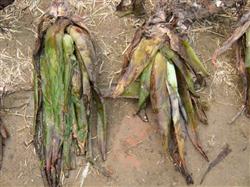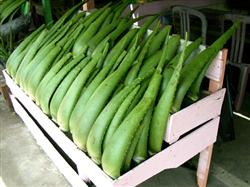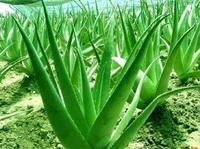How to prevent cold of potted aloe

Potted aloe vera has strict requirements on temperature in winter. the lower the temperature is, the greater the harm to aloe is. When overwintering, the main measures to prevent cold are: to set up a cold ditch. Can be in the sunny leeward yard to dig a rectangular hole, its size can see the number of overwintering aloe pots and plant size, generally 50 to 70 centimeters deep, 1 long. 5x 2m, 1m wide. A pit can hold 6m 8 pots of aloe, which is framed with bamboo and sealed with double-layer plastic film. Uncover the film when the sun is good at noon, breathe and change air to reduce the humidity in the pit. Cover it with quilts and straw blankets at night. The capacity of this kind of simple pit-type family potted aloe is random, the overwintering effect is safe and reliable, and is suitable for application in the north. In some places in northeast China, in order to increase the temperature of the pit, horse and cow dung, coal ash and thin soil are often used at the bottom of the pit. The thickness of horse and cow dung is 25cm to 30cm. Using the heat generated by its fermentation, the temperature in the pit can be increased continuously for more than 3 months. Economical and safe, the effect is very good. Heating overwintering. The indoor heating conditions of each household are different in winter, and the methods of potted aloe holding and overwintering are also very different. If there is indoor heating, it is easier to meet the temperature requirements of aloe. But do not put aloe directly on the radiator, otherwise the high temperature will scald the roots and the heat will spoil the leaves. Put a long piece of wood on the heater and put the potted aloe on it. Although heating by burning coal directly in some places can also achieve the purpose of increasing temperature, attention should be paid to proper ventilation to avoid the influence of sulfur dioxide produced in the process of soot, furnace ash and coal burning on the growth of aloe vera. Make an incubator. Families with conditions can also make a simple incubator, which is the size of a TV set, inlaid with glass, sealed with plastic film, and equipped with a 60-kilowatt incandescent bulb. Turn on the lights from dusk to the early morning of the next day to increase the temperature and light in the box. However, it should be noted that aloe can not be too close to the light bulb to avoid being burned. If the box is too dry, you can put a small bowl of water to increase the humidity. At noon every day, you can open the incubator for air. Covered with plastic bags. Covering potted aloe vera with plastic bags is the easiest way to keep warm and survive the winter. You can use iron wire to tie an arch bracket on the edge of the flowerpot, cover it with a plastic bag, and wrap aloe and the pot together. When the room temperature increases, take off the plastic bag in time. Although this method is simple, the effect of heat preservation and overwintering is not bad. But the time of covering the bag should not be too long, otherwise the temperature in the bag will rise and the air will not be breathable, otherwise the aloe will be damaged.
- Prev

Cultivation techniques of Edible Aloe
The first section summarizes aloe, which is a perennial succulent herb of the family Liliaceae. Originated and mainly distributed in the African continent, Yuanjiang in Yunnan Province of China has wild resources. The edible part of aloe is a succulent leaf with succulent juice, which is rich in nutrients and mainly has a large number of B-dimensional.
- Next

Insect pests and Control techniques of Aloe Vera
The main pests of aloe are red spiders, aphids, cotton bollworm and shell insects. These pests mainly harm the seedlings or tender leaves of aloe, and the occurrence quantity is small. 1. Red spiders and aphids. It mainly occurs in spring, summer and autumn. (1) physical control. When the number of worms is small, it can be washed with clean water or crushed to death by hand.
Related
- Fuxing push coffee new agricultural production and marketing class: lack of small-scale processing plants
- Jujube rice field leisure farm deep ploughing Yilan for five years to create a space for organic food and play
- Nongyu Farm-A trial of organic papaya for brave women with advanced technology
- Four points for attention in the prevention and control of diseases and insect pests of edible fungi
- How to add nutrient solution to Edible Fungi
- Is there any good way to control edible fungus mites?
- Open Inoculation Technology of Edible Fungi
- Is there any clever way to use fertilizer for edible fungus in winter?
- What agents are used to kill the pathogens of edible fungi in the mushroom shed?
- Rapid drying of Edible Fungi

